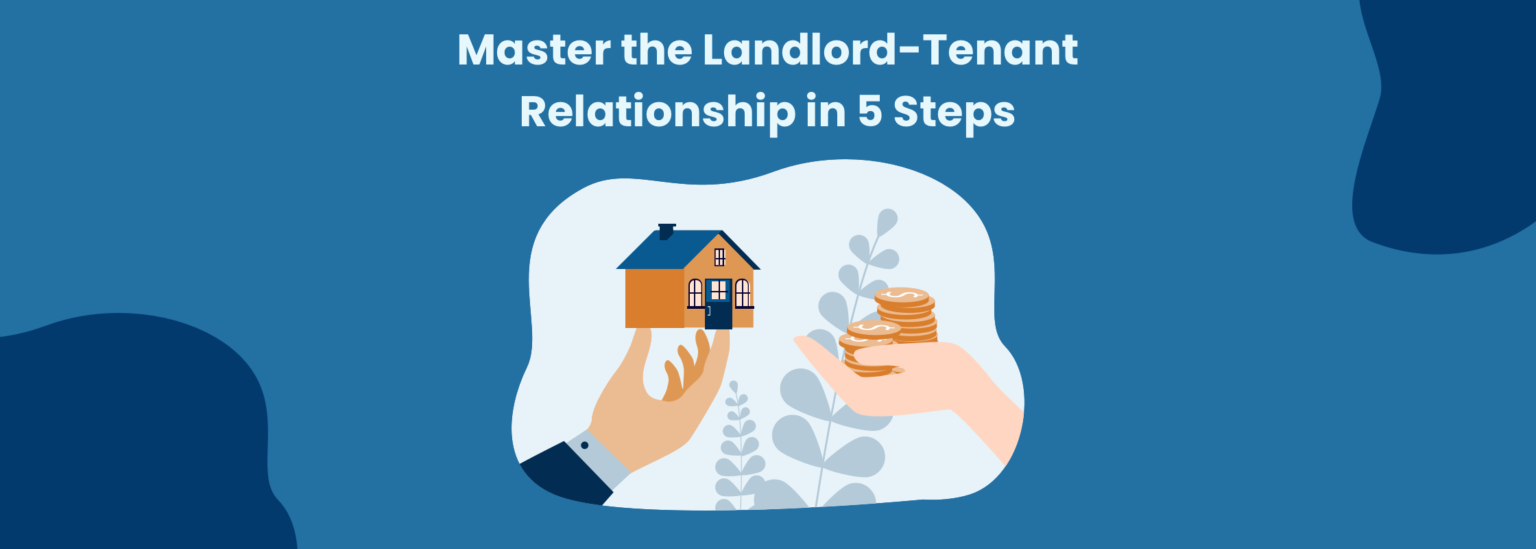Maintaining good relationships with your tenant(s) is crucial for your long-term success, but understanding how to build rapport without overstepping boundaries can be challenging. However, the rewards are well worth the effort.
Tenants who feel respected, supported, and comfortable are more likely to renew their lease, which translates into lower vacancy rates and more money in your pocket. In turn, you can rest easier knowing that your rental unit is occupied by someone who respects you and your investment.
To help you navigate the landlord-tenant relationship, Sarnen Steinbarth, founder of TurboTenant, real estate investor, and Forbes Councils Member, has outlined five actionable tips to foster a healthy connection with your renters.
1. Get to Know Your Tenant
As Steinbarth states in his Forbes article, “while a tenant screening report lets you review the hard data to see if the renter will pass your background, credit, and income criteria, it’s still a good idea to get to know the renter beyond the screening report.”
In practice, that means having a conversation or two before offering a lease. These conversations will allow you to clear up any questions you may have, particularly if you learned anything interesting but not disqualifying through the pre-screener questionnaire. It also opens the door for your prospective tenant to ask you any questions they may have and get to know you as a landlord, which will “help establish a solid foundation for the tenancy and set a good tone from the start,” according to Steinbarth. Remember to be genuine, transparent, and kind above all else, and you’ll start your landlord-tenant relationship off right.
If your renter has already moved in, don’t worry! You can follow the rest of our tips to establish a great relationship, even if you didn’t have many conversations before the lease was signed.
Pro Tip:
Making a note of your tenant’s birthday and sending them a card along with a small gift is a thoughtful way to build rapport. Just remember to do the same for all your renters so no one feels left out!
2. Prioritize Good Communication
Communication is key to building healthy relationships of all kinds. In particular, Steinbarth notes that “landlords need to be transparent with tenants about their policies and easy to get in contact with, ensuring their tenants feel like they can talk to them when an issue arises.”
Good communication requires more than a love of chatter. Walden University outlines seven steps you can take to become an effective communicator:
- Identify your objectives. What do you want your tenant to take away from your conversation?
- Listen actively. To communicate effectively, your tenant has to know that you’re going to listen to them just as you hope they’ll listen to you.
- Pay attention to your body language. As the university states, “communication involves not just the words you speak, but what your body is saying.” Folded arms and a grimace indicate that you’re not ready to have a productive conversation; sitting up in a relaxed pose with your arms open communicates that you’re open to what they have to say.
- Know your audience. The way that you talk to your tenants should be different than how you speak with your best friends. Keep things professional (though that doesn’t mean you have to skimp on compassion, empathy, or fun!).
- Pace yourself. If you speak at a mile per minute, your message will get lost. Instead, pay attention to how quickly or slowly you’re speaking in conjunction with how engaged your tenant seems, and adjust your cadence accordingly.
- Choose the right time. In the context of property management, this means that you should give tenants as much time and notice as possible before any major changes, such as rent hikes or a mandatory inspection. Your local landlord-tenant laws outline how much notice you’re required to give tenants, but if you know something earlier, consider whether they should, too.
- Be clear. Avoid misunderstandings by communicating your message clearly and without nuance. Your honesty and clarity will bolster your relationship as a whole.
Did You Know?
Landlords who use TurboTenant for rent payments enjoy automatic Check-Ins. After the tenant pays rent each month, we ask them how they’re enjoying the unit and if there’s anything they want to tell you, making it easier than ever to maintain good communication!

3. Be Organized
Hard truth time: disorganization will make managing your rental(s) downright painful. From losing track of rent payments to hindering good communication, disorganization can spell death for even the most promising property management businesses.
There is a tool designed by landlords for landlords to help you stay organized, but there’s more you can do to set yourself up for success. Asana, a leading project management software company, recommends you take five steps to better organize your business:
- Declutter your workspace. Visit anywhere that you’re currently using for your business (such as your office, email inbox, kitchen table, etc.), then “sort, file, and store all the items and documents that you still deem necessary for your business. Take it a step further and digitize physical documents so that you can store them somewhere.”
- Document your workflows. Staying organized means keeping your workflows clear and consistent. Write down what you do, when, and how often to ensure all your processes, from collecting e-Signatures to managing maintenance requests, go off without a hitch.
- Automate what you can. The less you have to think about the administrative parts of your business, the more you can focus on what matters: providing a safe, comfortable place for your tenants to live while earning passive income. If you use property management software that automates late fee collection and messaging, for example, that’s one less hassle you have to worry about!
- Create templates. Re-writing your lease every time a tenant moves out is a waste of time. Work smarter, not harder, by leveraging top-quality lease addendum and rental agreement templates.
- Manage your workload in one set location. Using one platform to store your documents, tenant communications, and leases means you only need to remember one password to run your property management business.
4. Use Designated Tools to Communicate With Tenants
While we’ve established the importance of communicating with your tenants, it’s equally crucial to consider how you communicate with them. If you bounce between text messages, calls, emails, and in-person conversations, you increase the likelihood of important information falling through the cracks.
Instead, establish a system of communication that works for both parties, and be “explicit on how you will communicate with a renter in your lease,” Steinbarth says. Keeping your communication in one place will prevent confusion, frustration, and makes it simple to reference past conversations as needed.
To take this tip a step further, we recommend providing your tenant with written information on how best to contact you. You can also set expectations regarding your response times and emergency numbers should something go wrong. It would be best to share this information with your tenant before they move in to set the precedent, but you can also establish a new system by using clear, direct messaging.
Let’s say you would like your tenants to reach out to you solely through TurboTenant’s messaging system. You could send your tenant a message with something like the following (feel free to copy our verbiage):
Hi, <Tenant name>!
I would like to streamline our communications process by relying on TurboTenant’s messaging feature. If you have any maintenance requests, questions, or concerns about the property, please message me through TurboTenant. I’ll receive an email every time you reach out, and you can expect me to follow up with you in <number> business days.
If you’re wondering how to view messages from me on TurboTenant, this article explains how to use their communication system within your account.
In an emergency, please call me at <your phone number>, and I’ll get back to you as soon as possible to help.
Please let me know if you have any questions!
Warm regards,
<Your name>
Just be sure to honor whatever expectations you set regarding your response times, or you’ll negatively impact your relationship.
5. Always Follow Landlord-Tenant Laws
Being familiar with and following federal, state, and local Fair Housing laws is critical to maintaining a good relationship with your tenant. As Steinbarth explains, “[staying up to date with Fair Housing laws] will protect you and your renters and make certain you do not do anything illegal or accidentally discriminatory.“
Want to learn more about the Fair Housing Act to avoid catching a discrimination charge? Enroll in the Fair Housing for Landlords course today!
Though the relationship between tenants and landlords has often been painted as tense and tumultuous, you can turn that stereotype on its head by following Steinbarth’s tips. Remember to be genuine, prioritize communication, stay organized, and follow all applicable laws, and you’ll take your landlord-tenant relationship to new heights.







